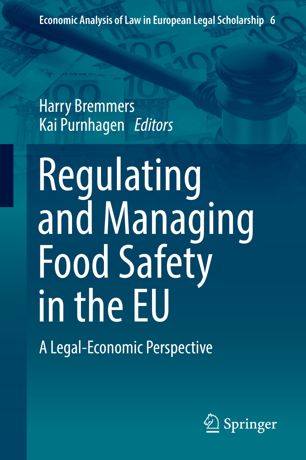

Most ebook files are in PDF format, so you can easily read them using various software such as Foxit Reader or directly on the Google Chrome browser.
Some ebook files are released by publishers in other formats such as .awz, .mobi, .epub, .fb2, etc. You may need to install specific software to read these formats on mobile/PC, such as Calibre.
Please read the tutorial at this link: https://ebookbell.com/faq
We offer FREE conversion to the popular formats you request; however, this may take some time. Therefore, right after payment, please email us, and we will try to provide the service as quickly as possible.
For some exceptional file formats or broken links (if any), please refrain from opening any disputes. Instead, email us first, and we will try to assist within a maximum of 6 hours.
EbookBell Team

4.8
34 reviewsThis book analyses EU food law from a regulatory, economic and managerial perspective. It presents an economic assessment of strategies of food safety regulation, and discusses the different regulatory regimes in EU food law. It examines the challenges of food safety in the internal market as well as the regulatory tools that are available. The book’s generic theorising and measurement of regulatory effects is supplemented by detailed analysis of key topics in food markets, such as health claims, enforcement strategies, and induced risk management at the level of the organizations producing food. The regulatory effects discussed in the book range from classical regulatory analysis covering e.g. effects of ex-ante versus ex-post regulation and content-related versus information-related regulation to new regulatory options such as behavioral regulation. The book takes as its premise the idea that economic considerations are basic to the design and functioning of the European food supply arena, and that economic effects consolidate or induce modification of the present legal structures and principles. The assessments, analyses and examination of the various issues presented in the book serve to answer the question of how economic theory and practice can explain and enhance the shaping and modification of the regulatory framework that fosters safe and sustainable food supply chains.